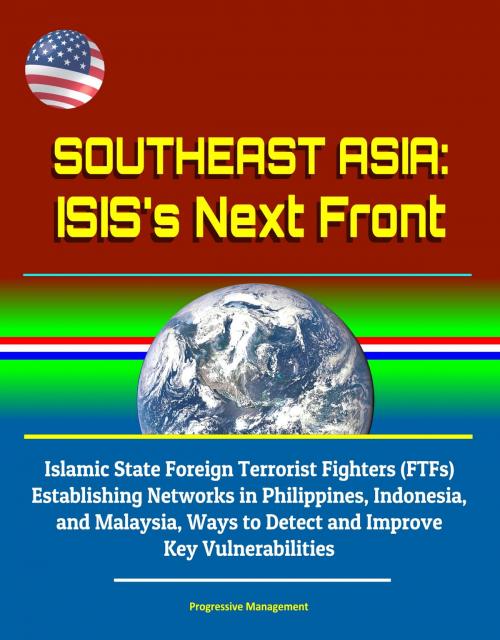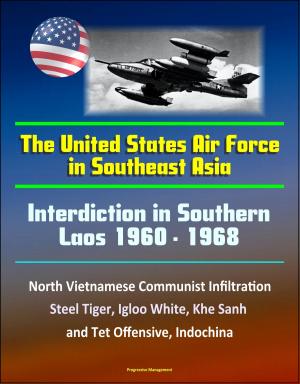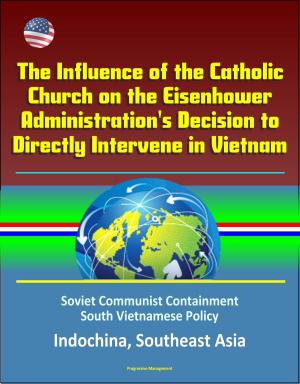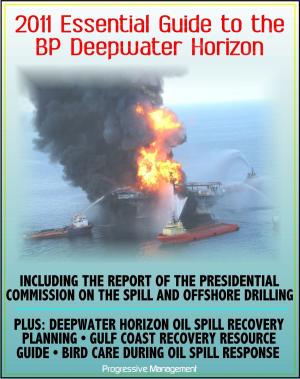Southeast Asia: ISIS's Next Front - Islamic State Foreign Terrorist Fighters (FTFs) Establishing Networks in Philippines, Indonesia, and Malaysia, Ways to Detect and Improve Key Vulnerabilities
Nonfiction, History, Asian, Southeast Asia, Social & Cultural Studies, Political Science| Author: | Progressive Management | ISBN: | 9780463999714 |
| Publisher: | Progressive Management | Publication: | June 17, 2018 |
| Imprint: | Smashwords Edition | Language: | English |
| Author: | Progressive Management |
| ISBN: | 9780463999714 |
| Publisher: | Progressive Management |
| Publication: | June 17, 2018 |
| Imprint: | Smashwords Edition |
| Language: | English |
This important December 2017 report has been professionally converted for accurate flowing-text e-book format reproduction.
This study examines key factors that may help the Islamic State of Iraq and al-Sham (ISIS) establish a new province, or front, within Southeast Asia. It poses the questions: What conditions have already allowed ISIS's brand of terrorism to spread to the region and how could they enable the terrorist organization to establish a front there? Four factors were examined across Indonesia, the Philippines, and Malaysia. These factors include the presence and strength of ISIS-aligned terrorist groups, the production and location of ISIS-affiliated foreign terrorist fighters (FTFs), the number and severity of ISIS-linked activity, and the overall level of each state's weakness. While no country remains completely insulated from ISIS, the Philippines is by far the most exposed. The country faces several challenges—a unified network of structured pro-ISIS groups, scores of incoming Southeast Asian FTFs, a large number of severe ISIS-linked activities, and a lack of counter-terrorism (CT) capacity. Without making significant changes to the country's CT efforts, the Philippines will likely continue to face the greatest ISIS threat in the region. The findings identified in this study may help other countries detect and improve key vulnerabilities that, if left unchecked, may advance ISIS's influence.
I. INTRODUCTION * A. MAJOR RESEARCH QUESTIONS * B. SIGNIFICANCE OF THE RESEARCH QUESTIONS * C. LITERATURE REVIEW * 1. ISIS-Aligned Groups * 2. Foreign Terrorist Fighters * 3. ISIS's Efforts * 4. State Weakness * D. POTENTIAL EXPLANATIONS AND HYPOTHESES * E. RESEARCH DESIGN * F. STUDY OVERVIEW * II. LEVELS OF SUPPORT FOR ISIS * A. INTRODUCTION * B. FACTOR ONE: ISIS-ALIGNED GROUPS * 1. Indonesia * 2. The Philippines * 3. Malaysia * 4. Conclusion * C. FACTOR TWO: FOREIGN TERRORIST FIGHTERS * 1. Indonesia * 2. The Philippines * 3. Malaysia * 4. Conclusion * D. CHAPTER CONCLUSION * III. ISIS-LINKED ACTIVITY AND STATE WEAKNESS * A. INTRODUCTION * B. FACTOR THREE: ISIS-LINKED ACTIVITY * 1. Indonesia * 2. The Philippines * 3. Malaysia * 4. Conclusion * C. FACTOR FOUR: STATE WEAKNESS * 1. Indonesia * 2. The Philippines * 3. Malaysia * 4. Conclusion * D. CHAPTER CONCLUSION * IV. CONCLUSION
This important December 2017 report has been professionally converted for accurate flowing-text e-book format reproduction.
This study examines key factors that may help the Islamic State of Iraq and al-Sham (ISIS) establish a new province, or front, within Southeast Asia. It poses the questions: What conditions have already allowed ISIS's brand of terrorism to spread to the region and how could they enable the terrorist organization to establish a front there? Four factors were examined across Indonesia, the Philippines, and Malaysia. These factors include the presence and strength of ISIS-aligned terrorist groups, the production and location of ISIS-affiliated foreign terrorist fighters (FTFs), the number and severity of ISIS-linked activity, and the overall level of each state's weakness. While no country remains completely insulated from ISIS, the Philippines is by far the most exposed. The country faces several challenges—a unified network of structured pro-ISIS groups, scores of incoming Southeast Asian FTFs, a large number of severe ISIS-linked activities, and a lack of counter-terrorism (CT) capacity. Without making significant changes to the country's CT efforts, the Philippines will likely continue to face the greatest ISIS threat in the region. The findings identified in this study may help other countries detect and improve key vulnerabilities that, if left unchecked, may advance ISIS's influence.
I. INTRODUCTION * A. MAJOR RESEARCH QUESTIONS * B. SIGNIFICANCE OF THE RESEARCH QUESTIONS * C. LITERATURE REVIEW * 1. ISIS-Aligned Groups * 2. Foreign Terrorist Fighters * 3. ISIS's Efforts * 4. State Weakness * D. POTENTIAL EXPLANATIONS AND HYPOTHESES * E. RESEARCH DESIGN * F. STUDY OVERVIEW * II. LEVELS OF SUPPORT FOR ISIS * A. INTRODUCTION * B. FACTOR ONE: ISIS-ALIGNED GROUPS * 1. Indonesia * 2. The Philippines * 3. Malaysia * 4. Conclusion * C. FACTOR TWO: FOREIGN TERRORIST FIGHTERS * 1. Indonesia * 2. The Philippines * 3. Malaysia * 4. Conclusion * D. CHAPTER CONCLUSION * III. ISIS-LINKED ACTIVITY AND STATE WEAKNESS * A. INTRODUCTION * B. FACTOR THREE: ISIS-LINKED ACTIVITY * 1. Indonesia * 2. The Philippines * 3. Malaysia * 4. Conclusion * C. FACTOR FOUR: STATE WEAKNESS * 1. Indonesia * 2. The Philippines * 3. Malaysia * 4. Conclusion * D. CHAPTER CONCLUSION * IV. CONCLUSION















